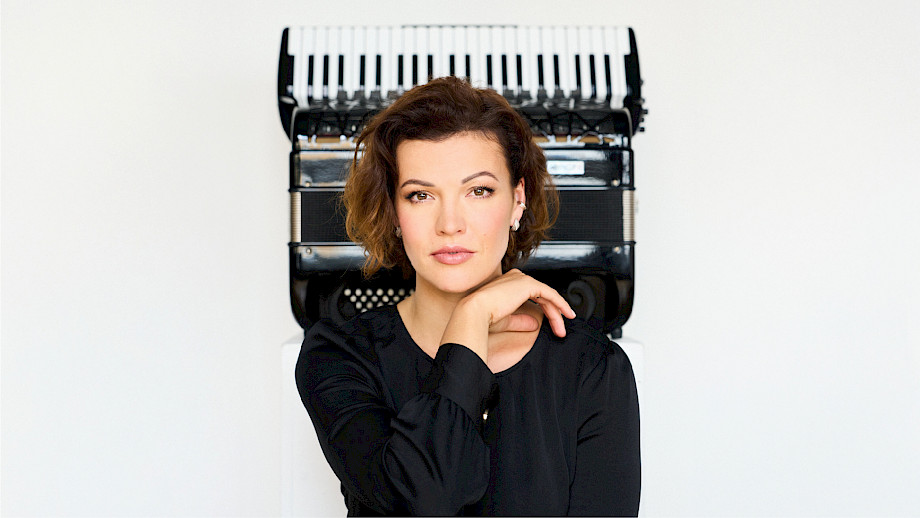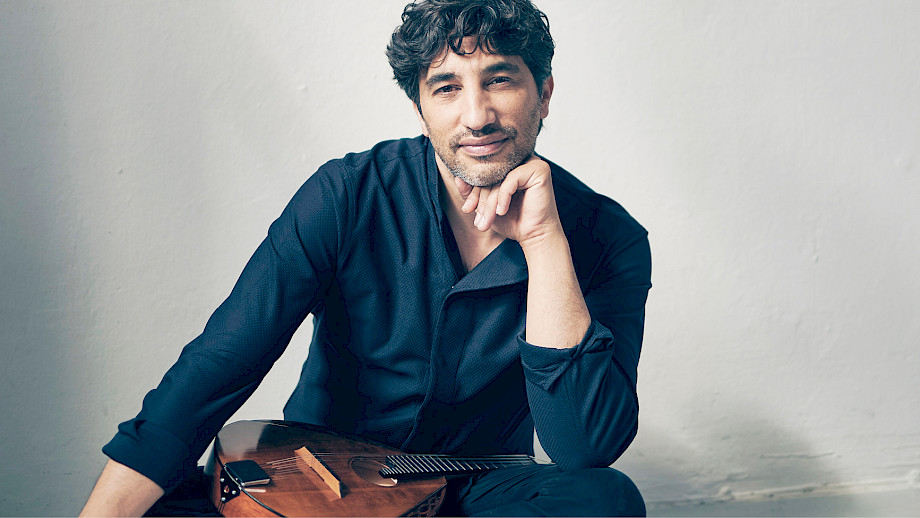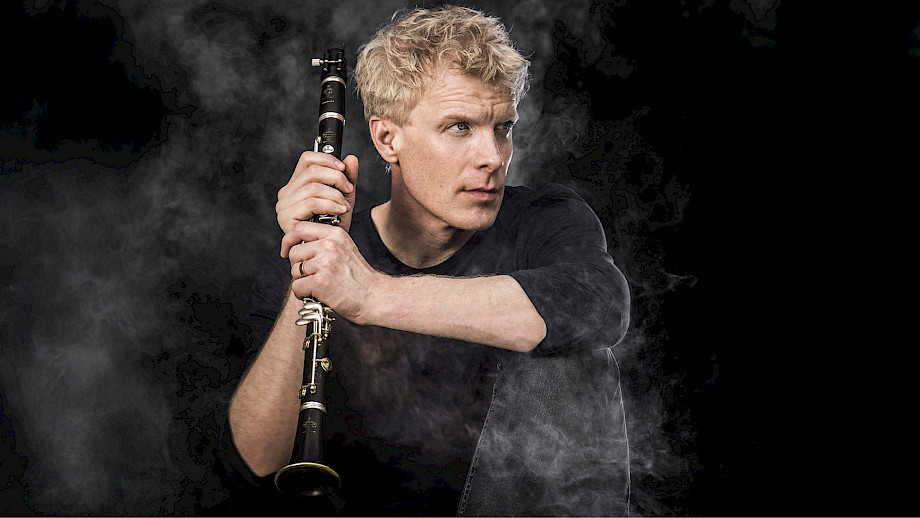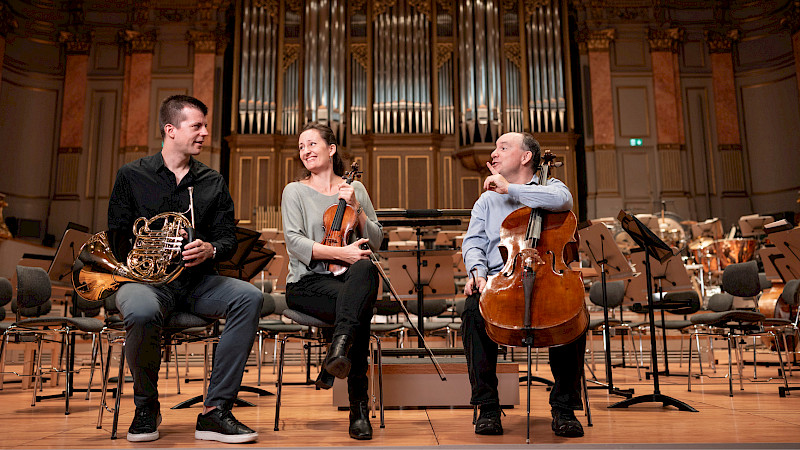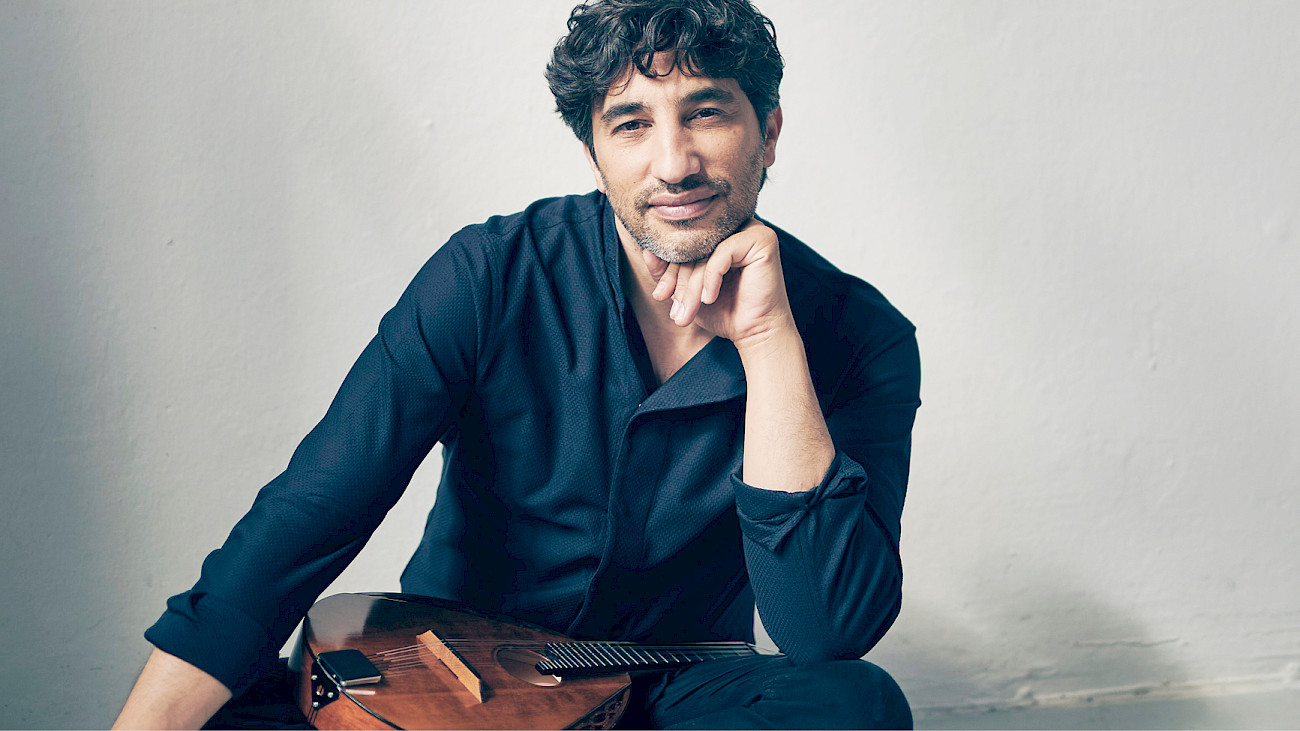
They put their instruments in the spotlight
The accordion, mandolin and clarinet are rarely used as soloists in symphony concerts. All three will soon be heard at the Tonhalle Zurich.
Seven piano concertos, six violin concertos and four cello concertos have been announced in the 2025/26 season programme, and no one will be surprised. The repertoire for these three instruments is vast, as is the number of high-calibre soloists performing on them.
But what about those who play other instruments? No clarinettist can keep his head above water with the famous works of Mozart and Carl Maria von Weber alone, a mandolinist has played the two Vivaldi concertos everywhere at some point - and an accordionist has no original classical hits available at all. So if you want to make a solo career with these instruments, you have to come up with something. What that might be: Martin Fröst, Avi Avital and Ksenija Sidorova will be demonstrating this in the coming months at the Tonhalle Zurich.
"What is that?"
In the beginning, says Ksenija Sidorova from Latvia on the phone, it was difficult. "When I turned up with my accordion in an orchestra, the initial reaction was: What's that?" They weren't exactly typing on a typewriter, as sometimes happens to her at the airport. But it wasn't a serious solo instrument either.
This has since changed, and she has contributed a lot to this - with her virtuosity, her willingness to take risks and her infectious enthusiasm for her instrument, which could also be experienced in the Kleine Tonhalle last March. She was actually supposed to give a concert there with baritone Thomas Hampson, but he had to cancel at short notice due to illness; she then decided to present a solo programme at equally short notice. She was a little nervous, she says: "I wasn't really prepared for it, and some people were perhaps looking forward to Hampson in particular. But when she stepped onto the stage with her 21-kilo instrument, it seemed like a part of her; when she played works by Glass and Bach and Piazzolla and talked about the music or her instrument in between: there was probably no one in the hall who wasn't amazed at what she was able to achieve with her accordion.
No wonder, given that her art inspires the creation of new works time and time again. The accordion concerto "Dances", for example, which she will perform at the end of September, was written especially for her by Estonian composer Tõnu Kõrvits. She once got to know him through Paavo Järvi; she had heard some of Kõrvits' works at his festival in Pärnu and liked his musical language: "He's one of those rock guys who has been interested in all kinds of music since childhood, and you can hear all these influences." However, writing for the accordion was also a challenge for him: "No composer simply knows what is possible on the instrument."
Kõrvits not only sat down with her to have her play things for him, he even tried out the accordion himself. Later, he sent her a few sketches asking whether they were playable, "and then the whole score arrived straight away". She was a little shocked, "I was sure that a lot of things would have to be changed - but everything was perfect on the keyboard. He was really totally immersed in the world of this instrument.
It is a world that has changed significantly in recent decades: "In the 1950s, there were enormous technical advances and suddenly you could play fully polyphonically," explains Ksenija Sidorova. "This made the accordion interesting for people like Luciano Berio or Sofia Gubaidulina. And vice versa: if such important composers are writing for the accordion, then there must be something to it."
But even if more and more works are created: No orchestra in the world will have them in its repertoire with the same naturalness as the great piano or violin concertos. Is she sometimes envious of those who have dozens of established scores and the audience socialised to them at their disposal? No, says Ksenija Sidorova. She does enjoy listening to piano concerts, "but it's also about enriching the music, creating something new, experimenting". Those who play the piano are much less forced to do so than she is, "and I sometimes think: Come on, forget your normal programmes and do something different!"
"Generation of cosmopolitans"
One person who also does "something different" is the Israeli mandolinist Avi Avital. Ksenija Sidorova knows him well, "he's one of my best friends, we've been travelling the world as stage partners for over ten years". Their instruments have a few things in common: neither of them plays in classical symphony orchestras and both are stylistically versatile.
And just like Ksenija Sidorova, Avi Avital does not see the lack of classical repertoire as a problem. He already experienced the advantage as a teenager - when he was able to score with the hit "Losing My Religion" by R.E.M., which is based on a mandolin riff. "I'm not bound by any traditions, I can play what I and the audience like," he once said in an interview. "It doesn't necessarily have to be classical music. You can also play pop, rock or bluegrass on the mandolin."
Even when he performs classical compositions, they sometimes sound like all sorts of other things. This also applies to the mandolin concerto by Sicilian composer and cellist Giovanni Sollima, which Avi Avital is bringing to Zurich in November. It is the result of a friendship: Sollima has already written a solo prelude for him, and they perform together time and again at duo evenings. Their common reference is the culture of the Mediterranean; Sollima's works for Avital incorporate North African, Sicilian and Israeli sounds.
Avi Avital once said that he belongs to the "generation of cosmopolitans who absorb many cultural influences". Accordingly, the music he plays has nothing to do with crossover. It is not contrived, but authentic - and an example of the many directions in which contemporary music has opened up again after decades of strict structures.
"A vision of horror"
Clarinettist Martin Fröst is another soloist who is delighted with this development, or rather, who is driving it forward with a great deal of imagination, energy and skill. The Swede may not seem quite as "exotic" in a classical context as Ksenija Sidorova or Avi Avital; the clarinet is an integral part of a symphony orchestra and there are, after all, a handful of really famous solo works for it.
But unlike most clarinettists, who at least at the beginning of their career combine an orchestral position with solo performances, Martin Fröst concentrated on the latter from the very beginning - successfully, but soon also increasingly sceptically. When he recorded the Mozart concerto for the second time, he began to think about new perspectives: the idea of one day looking back on hundreds of performances of this work and the equally famous concerto by Carl Maria von Weber at the age of 85 was "a horror vision" for him.
So he began to think up projects in which he was not just a clarinettist, but also a conductor, lyricist, dancer and "master of ceremonies". He works together with lighting designers, choreographers and the Royal Stockholm Philharmonic Orchestra - and combines classical, contemporary and improvised sounds under titles such as "Dollhouse", "Genesis", "Retrotopia" and "Xodus". His solo performances with other orchestras also reveal his desire for new things: he arranges some things himself, others are composed by his brother Göran Fröst, who specialises in klezmer, and time and again he premieres major concertos.
One of these was "Weathered" by British composer Anna Clyne in 2023, which he will rehearse with the Tonhalle-Orchester Zürich in October under the direction of Cristian Măcelaru. The piece tells of weathered things in five almost visually characteristic movements: of a rusty bridge, for example, of a broken heart, of climate change. Martin Fröst was involved in the creation process and he and Anna Clyne exchanged ideas at various stages - about playing techniques and sounds, about particularly favourable and just possible constellations.
It was a challenge to write for clarinet, the composer said in an interview afterwards. And: the discussions with Martin Fröst had led to it becoming "a stronger, more specific work". Mozart could have said the same thing when he wrote his clarinet works for Anton Stadler - and together with him developed the idea of a basset clarinet that could also be played chromatically in the lower register.
Perhaps the appeal of the clarinet, but also of the mandolin or the accordion, lies precisely in the fact that these instruments are not at the centre of the concert tradition. Anyone who composes for them or aspires to a solo career with them must (and may) be just as open to the unfamiliar as the audience. Or as Ksenija Sidorova so aptly puts it with a proverb: "If you don't take risks, you don't drink champagne." With this in mind: cheers!




